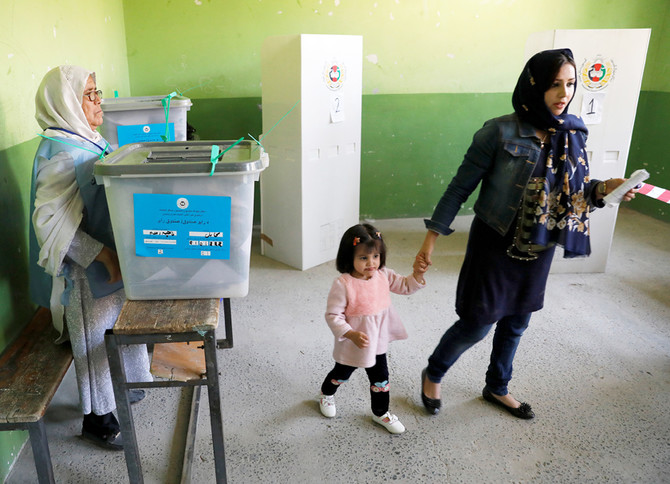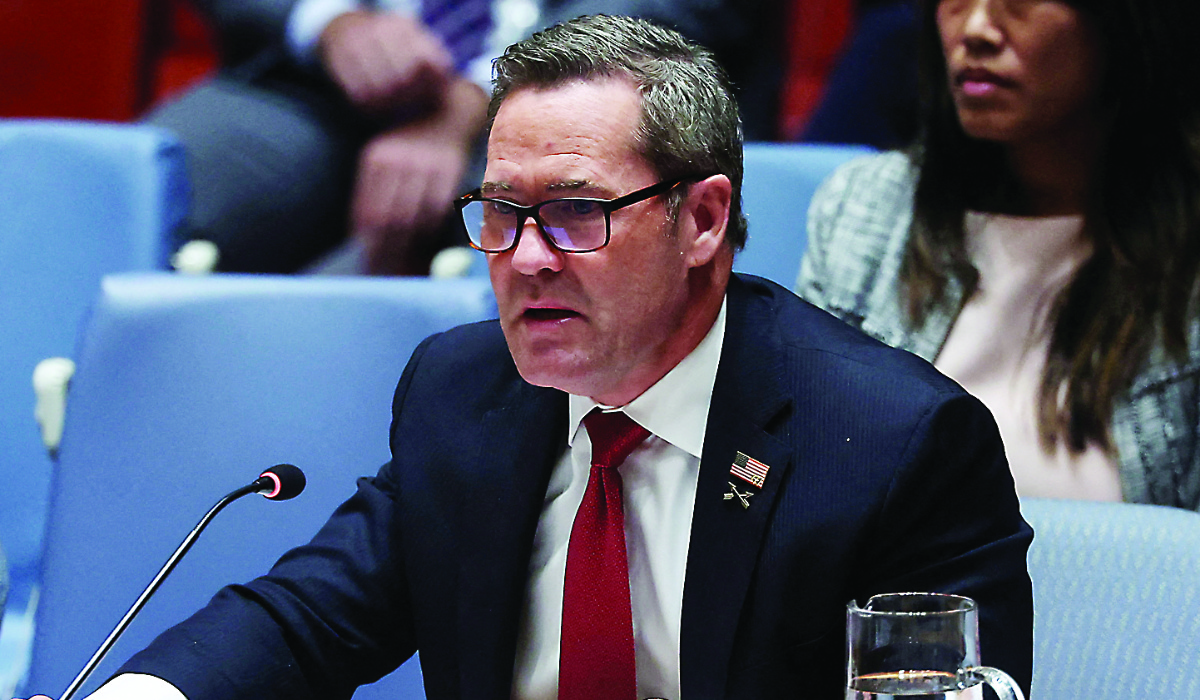KABUL: Afghanistan’s first parliamentary elections in eight years suffered from violence and chaos Saturday, with a multitude of attacks killing at least 36 people, key election workers failing to show up and many polling stations staying open hours later than scheduled to handle long lines of voters.
Problems surrounding the elections — already three years overdue — threaten to compromise the credibility of polls which an independent monitoring group said were also marred by incidences of ballot stuffing and intimidation by armed men affiliated with candidates in 19 of the country’s 32 provinces. Some areas have yet to vote, including Kandahar, where the provincial police chief was gunned down Thursday.
Stakes were high in these elections for Afghans who hoped to reform Parliament, challenging the dominance of warlords and the politically corrupt and replacing them with a younger, more educated generation of politicians.
They were also high for the US, which is still seeking an exit strategy after 17 years of a war there that has cost more than $900 billion and claimed more than 2,400 US service personnel.
The ballot is regarded as crucial for the stability of Afghanistan, wracked by more than four decades of war, foreign interventions and tribal rift. The latest poll is the third for choosing a legislative body since the ouster of the Taliban in late 2001 in a US-led invasion.
Deputy Interior Minister Akhtar Mohammed Ibrahimi said 36 people were killed in 193 insurgent attacks across the country: 27 civilians, eight police officers and one Afghan soldier. He said attackers used everything from grenades to small arms fire to mortars and rocket launchers, and that security forces killed 31 insurgents.
The most serious attack on the polls was in a northern Kabul neighborhood where a suicide bomber blew himself up just as voting was about to end, killing three people and wounding another 20, many of them seriously, said Dr. Esa Hashemi, a physician at the nearby Afghan Hospital. Interior and defense ministry officials said 15 people were killed or wounded, including several police.
Polling stations also struggled with voter registration and a new biometric system that was aimed at stemming fraud, but instead created enormous confusion because many of those trained on the system did not show up for work. Also, the biometric machines were received just a month before polls and there was no time to do field testing.
Results delayed
Initial results of the vote, delayed by more than three years because of a power struggle in the government, will be released in three weeks’ time. Final results will be published after two months.
Many candidates are young and educated men and women who want to replace current MPs at the house, regarded as one dominated by corrupt elements and factional members as Taliban and Daesh spread their attacks in the country.
The Taliban guerrillas had threatened to disrupt the process, conducted various attacks, including firing mortars, suicide raids and bomb blasts near some polling stations, including in at least five areas of Kabul.
“Today, we proved together that we uphold democracy with casting out ballots without fear, we honor the sacrifices of the fallen,” President Ashraf Ghani told reporters after casting his vote in a highly protected school near the presidential palace in Kabul.
Cases of widespread irregularities across the country were reported by journalists, locals and even government officials.
They include late opening of sites, lack of knowledge of some election works in recording votes and use of biometric devices, aimed at reducing fraud, which is another major concern apart from security threats.
Observers and media were barred from visiting some sites. Some stations did not open at all. The country’s second Chief Executive, Mohammad Mohaqiq, openly said that at least 22 stations did not open at all in only two areas in Kabul city itself.
Simar Soresh, a spokesman for the election commission, confirmed that some sites remained closed owing to “technical challenges,” vowing to prolong voting hours when they open.
Many blamed the government appointed elections body for the shortcomings. The body has faced organizational problems and a rift owing to a power struggle among government leaders.
Some frustrated voters even went back home after waiting for hours for the opening of polling stations in Kabul.
In one such station, a policeman asked voters if they knew the voting process so he could let the station open. In northern Maimana, people complained that there were no biometric devices in place.
In others, voters said they could not find their names on the books where they had registered months before during the registration process. It would take at least five minutes for a voter to cast a vote.
One journalist covering the event closely described the situation as “Mismanagement and chaos across the country.”
“This is just a joke, I am leaving. I came to vote despite the Taliban warning, but you see the mess and confusion and heard the blasts. It is not worth dying for this because the process is not handled properly,” Zaman Khan, a bewildered voter in a central area of Kabul, told Arab News.
Irregularities everywhere
The irregularities that led to closure and caused slow voting process are seen as a further blow to the voting, which is funded by donors’ money.
The government already had said it could not open some 2,000 sites because of security threats.
Scores of people, including 10 candidates, have died in a series of attacks by Taliban and Daesh in recent months.
The government delayed the holding of the polls in the historically important southern Kandahar for a week after an attack that killed its powerful police chief and intelligence head.
Bilal Sarwary, a candidate from eastern Kunar, said like some other parts of the country, there were “high irregularities” during the voting there.
“Some sites opened very late. The biometric system did not work in some sites and in others they were slow or election workers did not know how to use them,” he told Arab News by phone.
“Some state officials interfered in some sites; there were no voting papers in some areas. Overall there were irregularities and confusion. It is a pity that with the sacrifice and so much money, irregularities marred the process.”
(With AP)


















